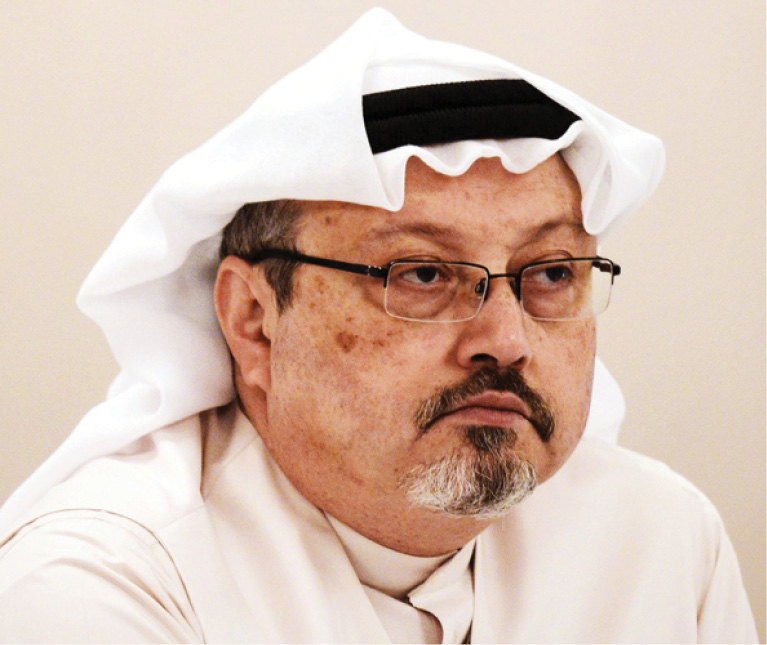Khashoggi’s killing isn’t a blunder, it’s a crime
Saudi Arabia’s apparent torture, murder and dismemberment of Jamal Khashoggi has been met in some quarters with more lamentation than outrage. Here – so the argument goes – was the most reformist government in the kingdom’s history; and then it did this stupid, awful thing; and now the U.S. runs the risk of making matters […]

Saudi Arabia’s apparent torture, murder and dismemberment of Jamal Khashoggi has been met in some quarters with more lamentation than outrage. Here – so the argument goes – was the most reformist government in the kingdom’s history; and then it did this stupid, awful thing; and now the U.S. runs the risk of making matters worse “in a fit of righteousness,” as one observer recently put it. O.K. But can we dwell on that “awful thing” just a bit longer?
That awful thing isn’t that somebody in Riyadh, deploying the cold logic of raison d’état, chose to kill an enemy. It’s who it chose to make an enemy of.
Khashoggi was not Anwar al-Awlaki, the American-born radical cleric killed in 2011 on orders from President Obama after he had joined forces with an Al Qaeda affiliate in Yemen and gone to war with the United States. He was not Fernando Pereira, the photographer unintentionally killed in 1985 aboard a Greenpeace ship after French intelligence agents sank the boat in New Zealand.
He was not even Alexander Litvinenko, the former Russian intelligence agent murdered in London in 2006 on Vladimir Putin’s orders. Litvinenko was trying to blow the lid on the crimes that helped bring Putin to power. His murder was an outrage, but he knew he was swimming in shark-infested waters.
Khashoggi was no terrorist, spy, or luckless bystander. He was a gadfly, bouncing between the West and the Middle East, by turns a courtier, commentator, public intellectual and mild dissident. He has been described as an Islamist, but his political sympathies were heterodox and frequently liberal. He supported Crown Prince Mohammed bin Salman’s decision to allow women to drive, but opposed the political clampdown that went with it.
A wise regime would have either ignored him or found a way to co-opt him. A thuggish regime might have seized his assets, tried him in absentia on a trumped up charge, or even sought to abduct him.
But it takes a striking combination of wickedness, arrogance and idiocy for Riyadh to think it can get away with a grotesque murder of a well-known and harmless journalist on the soil of a Middle Eastern rival in a consulate the Saudis must have known was either bugged or surveilled.
It seems it was. As “agents cut off Mr. Khashoggi’s head and dismembered his body,” a Saudi doctor of forensics who had been “brought along for the dissection and disposal” had some advice for the others, The Times reported Wednesday. “Listen to music, he told them, as he donned headphones himself.”
What music? The soundtrack to “Sweeney Todd”?
Apologists for the Saudis have pointed out that other nominally allied countries, including the Turks, have their own apparatus of torture and repression. That’s true, though American presidents don’t normally try to find alibis and make excuses for such countries immediately after the commission of heinous acts.
Apologists also say that we need Riyadh to share intelligence, oppose Iran, and pump oil. True as well, though the kingdom will still oppose Iran and pump oil regardless of the attitude we take toward Khashoggi’s killing. As for intelligence, if they don’t want to share theirs we needn’t share ours. In the age of fracking, the House of Saud has infinitely more need of the United States than the United States has of the House.
That would have been the best lesson the Trump administration could have administered to the Kingdom and its apprentice ruler. That, and a demand for an independent investigation along the lines of the U.N. investigation into the murder of former Lebanese Prime Minister Rafik Hariri.
A culprit may never be brought to justice, particularly if the hit on Khashoggi was ordered by the crown prince. The suspects named in the Hariri case also got away.
The alternative, however, is to allow journalists to be tortured and dismembered with a nod and a wink from Washington, and that is much worse. It makes the U.S. not just a bystander to the criminality of our allies, but also a partner. And it makes it impossible for us to condemn similar acts by our enemies. What does the U.S. do the next time the Kremlin chooses to eliminate one of its enemies on British soil?
Like many Westerners who have met Mohammed bin Salman, I’ve been impressed by his energy and sympathetic to his message of social, religious and economic reform. I’m also under no illusions about the threats to his kingdom, and of the need for toughness in the face of them.
Yet murdering a defenseless journalist in your own consulate isn’t toughness. It’s barbarism. And trying to brazen your way into the clear with empty promises of an investigation and blustering threats of diplomatic reprisal isn’t evidence of a young ruler’s reformist instinct. It’s a path toward a darker form of tyranny.
Donald Trump and Secretary of State Mike Pompeo may think they’re preserving a necessary alliance with Riyadh in the face of moral posturing by their critics. They should take care lest the effect of their forbearance is yet another Mideast monster.
Source:www.nytimes.com
